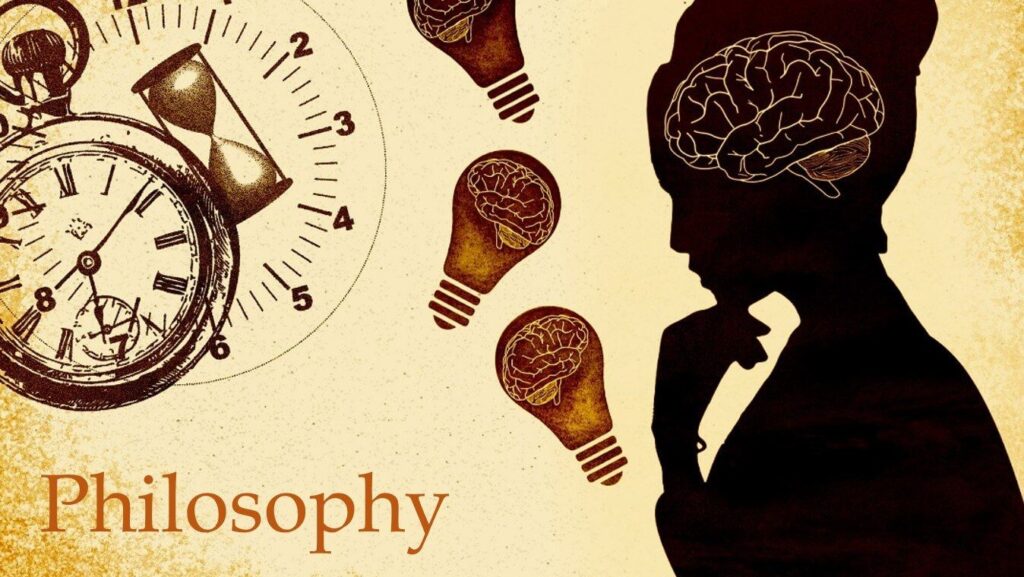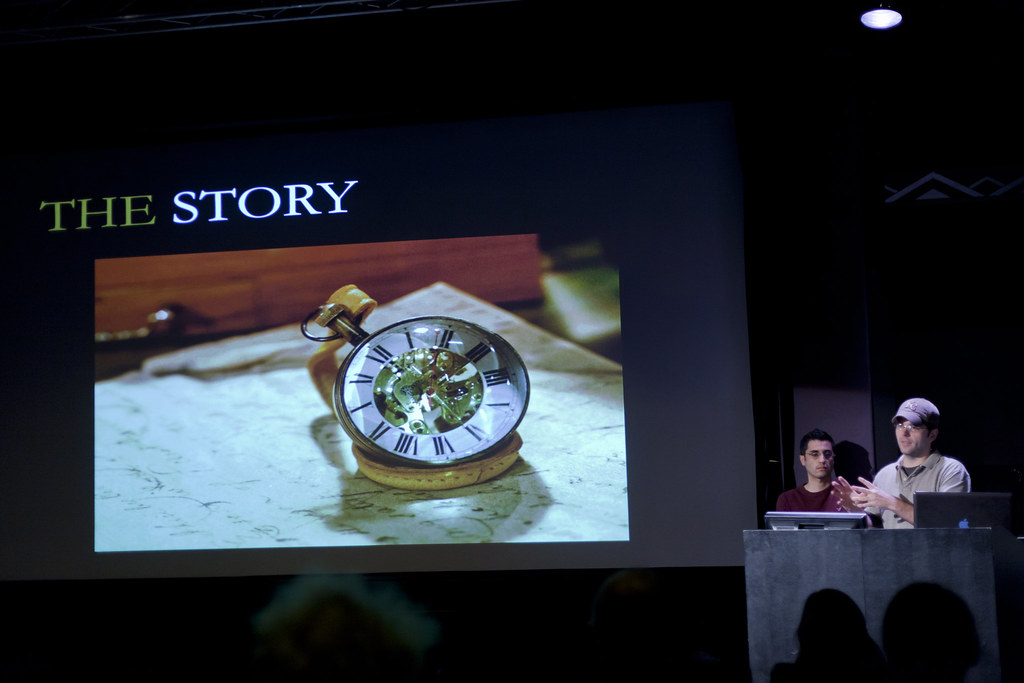In an era often characterized by fleeting fame and singular professional paths, the narrative of individuals who seamlessly navigate divergent worlds—from the spotlight of entertainment to the rigorous halls of academia—offers a compelling study in human curiosity and resilience. These are the stories of those who, driven by an insatiable intellectual hunger, choose to peel back the layers of public perception and immerse themselves in the profound depths of philosophical inquiry or the intricate complexities of scientific discovery. Their journeys underscore a powerful truth: that the pursuit of knowledge knows no conventional boundaries and can emerge from the most unexpected quarters.
Such dualities challenge our conventional understanding of career progression, inviting us to reconsider what it means to lead a fulfilling and impactful life. They highlight that the skills honed in one domain—be it public performance, communication, or creative expression—can remarkably complement and enrich endeavors in another, particularly in the demanding world of higher education. The intellectual rigor of philosophy or particle physics, when embraced by those with a background in public engagement, often results in unique perspectives and an enhanced ability to articulate complex ideas to a wider audience, bridging gaps between specialized knowledge and everyday understanding.
One such captivating journey is that of Luka Jones, a figure whose trajectory through the entertainment industry is intertwined with a profound academic pursuit in philosophy. His story is not just one of transformation, but of integration, where his intellectual insights begin to inform and deepen his artistic expression. His path exemplifies how an early passion, even when met with initial hurdles, can ultimately find a new dimension through the demanding discipline of academic thought, proving that the search for meaning can lead to both the stage and the seminar room.

1. Early Aspirations and Setbacks: The Hollywood Struggle
Luka Jones, born Luka Yovetich in a Chicago suburb, embarked on his professional life with ambitions firmly rooted in the performing arts. After completing a degree in communications at the University of Kansas in 1997, he made the quintessential move to Los Angeles, a city synonymous with dreams of stardom. Like countless others, he arrived with the hope of carving out a significant acting career in Hollywood.
However, the entertainment industry is notoriously unforgiving, and Jones soon found himself grappling with the harsh realities of breaking in. Despite his initial enthusiasm and participation in a few projects, he recognized a lack of meaningful progression. He candidly admits, “I was enjoying the few things I did, but it wasn’t moving forward.” This period was marked by the pervasive challenge of securing representation and landing substantial roles, a common hurdle for aspiring talents.
The stagnation and abundant free time began to wear on him, leading to a profound sense of restlessness. “It’s always really hard to bust in and get a good agent or manager and start getting into real jobs,” he observed, reflecting on the systemic difficulties. This impasse became a critical juncture, compelling him to seek an alternative outlet for his considerable energy and intellectual drive, rather than succumb to the idleness of Hollywood’s slower moments.
Read more about: Sydney Sweeney’s Recent Setbacks: A Deep Dive into ‘Eden,’ ‘Americana,’ and the American Eagle Controversy

2. An Unexpected Intellectual Calling: Discovery of Philosophy
Despite his initial struggles with formal schooling, which he describes as “not hav[ing] the best relationship with the academic aspect of school,” Jones made a pivotal decision. Driven by a desire to occupy his mind constructively during acting downtimes, he enrolled in a philosophy master’s degree program. This unconventional choice led him to California State University, Los Angeles, marking the beginning of an intellectual awakening.
What began as a pragmatic decision to fill his time quickly evolved into a genuine passion. He found himself unexpectedly captivated by the subject matter, discovering a deep affinity for philosophical inquiry. “Once I took a class or two, I was like, ‘Oh yeah, this is for me,'” he recounted, highlighting the immediate and undeniable connection he felt to the discipline. This realization was more than a passing interest; it was a profound intellectual resonance.
The experience of engaging with complex ideas and critical thinking provided a stark contrast to the uncertainties of his acting career. It offered a structured yet infinitely expansive realm of exploration, satisfying a part of him that Hollywood had, until then, left untapped. This newfound enthusiasm for philosophy laid the groundwork for a much deeper dive into academia, illustrating how transformative a change in intellectual focus can be.
3. The Rigor of Academia: Pursuing a PhD at USC Dornsife
Emboldened by his success and burgeoning passion for philosophy during his master’s studies, Jones set his sights on the pinnacle of academic achievement. He applied to and was accepted by several philosophy PhD programs, ultimately choosing the prestigious USC Dornsife’s School of Philosophy. This decision in 2005 represented a significant commitment to intellectual pursuit, signaling a potential shift towards a career in academia.
His doctoral research delved into a specialized and nuanced area of philosophical debate. Jones dedicated his dissertation to “Merely Verbal Disputes in Philosophy,” a topic that examines arguments arising purely from semantic differences rather than substantive disagreements. This choice reflects a sophisticated engagement with meta-philosophical questions, showcasing his capacity for deep analytical thought and intellectual discernment.
Jones characterizes his PhD experience as one of the most rewarding periods of his life. He found immense satisfaction in the opportunity to “pick a subject and really bore into it.” This intensive, focused study, coupled with the intellectual camaraderie and challenging environment, was profoundly stimulating. The process of developing and defending original ideas under critical scrutiny was a deeply fulfilling intellectual exercise for him.
4. Mentors and the Dissection of Ideas: The Doctoral Experience
A crucial aspect of Jones’ enriching PhD journey at USC Dornsife was the caliber and dedication of his mentors. He fondly recalls professors who played instrumental roles in his development, naming prominent figures such as James Higginbotham, Scott Soames, Janet Levin, and, notably, his dissertation advisor, James Van Cleve. These individuals were not figures from the entertainment world, but intellectual luminaries.
The Philosophy School at USC Dornsife boasted an impressive faculty, drawing talent from leading institutions. James Higginbotham, who directed the school from 2000 to 2007, and Scott Soames, a Distinguished Professor of Philosophy hired from Princeton, provided an intellectually vibrant environment. Jones remarks on Soames’ recruitment as “such a big deal,” underscoring the high academic standing of the department and its faculty.
What resonated deeply with Jones was the commitment of these scholars to their students. He noted their genuine concern for teaching and for “training grad students,” recalling their supportive and inspiring presence. “They were all wonderful; so supportive,” he states, highlighting the nurturing intellectual ecosystem that facilitated his deep dive into complex philosophical concepts. This mentorship was pivotal in shaping his analytical skills and academic rigor.

5. A Resurgent Acting Career: From Stand-Up to Major Roles
Just as Luka Jones contemplated a future in academia, believing the “lifestyle of a philosophy professor, the teaching and research, seemed like something I’d be happy with,” his path took an unexpected turn. Towards the completion of his philosophy degree, his acting career, which had long languished, began to gain significant momentum, creating a fascinating crossroads between his two burgeoning passions.
His resurgence began on the Los Angeles comedy circuit, performing stand-up and improv at venues like the Upright Citizen’s Brigade. These performances caught the eye of industry insiders, leading to his first significant breakthrough: a role on NBC’s *Best Friends Forever*. Though the show’s run was brief, it provided a crucial foothold, placing his acting career on significantly firmer ground and opening new doors.
This initial success quickly snowballed into more prominent roles. He joined the cast of *Up All Night*, sharing the screen with acclaimed talents such as Christina Applegate, Maya Rudolph, and Will Arnett. Soon after, he landed a role in Spike Jonze’s critically acclaimed sci-fi romantic dramedy *Her*. Despite much of his performance ending up on the cutting-room floor, an experience he took with stoicism, he considers it among his favorite professional experiences.
His acting career continued its upward trajectory, featuring guest spots in numerous television shows. He also secured major recurring roles in TBS’s *People of Earth* and Hulu’s *Shrill*, alongside *Saturday Night Live* veteran Aidy Bryant. This string of successful projects firmly established Luka Jones as a recognizable and respected figure in both comedic and dramatic acting, demonstrating a remarkable versatility that complemented his intellectual depth.

6. The Philosophical Dimension of Performance: Semantics and Storytelling
Luka Jones, despite his deep philosophical training, is quick to clarify that his academic background doesn’t directly dictate his acting choices. However, he readily acknowledges intriguing commonalities and indirect influences between the two disciplines. For him, the analytical skills honed in philosophy provide a unique lens through which to approach performance and character interpretation, subtly enriching his craft in ways that might not be immediately apparent to an audience.
He points to his dissertation topic, “Merely Verbal Disputes,” as a prime example of this intellectual crossover. This area of philosophy examines arguments that stem purely from differences in word meaning rather than substantive disagreements, a concept that can be profoundly entertaining when transposed to stage and screen. Misunderstandings rooted in semantic nuances are often the bedrock of comedic scenarios, providing ripe material for compelling storytelling.
To illustrate this point, Jones references the timeless comedy routine of Abbott and Costello, specifically their “Who’s on first” sketch. The entire comedic premise hinges on Lou Costello’s hilarious confusion, which arises entirely from a simple difference in word usage and interpretation. This classic example perfectly encapsulates how a philosophical understanding of language and its potential for miscommunication can be directly applied to creating engaging and humorous performances, transforming abstract concepts into tangible art.
Beyond the literal application of philosophical concepts, Jones draws a more imaginative parallel between philosophers and fictional heroes. He playfully likens highly intelligent philosophers, capable of manipulating complex ideas in their minds “kind of like a hologram,” to the comic book hero Tony Stark. This comparison, while tongue-in-cheek, underscores the profound cognitive abilities required in both fields, where one must turn ideas around to “see connections between different parts” with incredible mental agility, echoing Stark’s technological prowess. He quips, “Yeah, if you do philosophy, you become like Iron Man,” encapsulating the intellectual power he associates with the discipline. His journey suggests that a rigorous pursuit of truth, whether on stage or in scholarly debate, ultimately leads to a richer, more insightful engagement with the world.

7. The Unexpected Overture: From Rock Star to Aspiring Physicist
In a parallel narrative of remarkable intellectual metamorphosis, we turn our attention to Professor Brian Edward Cox, a figure whose public persona as a rock musician dramatically preceded his ascent to becoming one of the world’s most recognizable particle physicists. Born on March 3, 1968, in the Royal Oldham Hospital, Cox’s early years were spent in Chadderton, characterized by a happy childhood filled with diverse pursuits like dance, gymnastics, and even the niche hobbies of plane and bus spotting. This seemingly conventional upbringing, however, held the seeds of an extraordinary future, especially given his initial, candid struggles with formal academics.
A pivotal moment in Cox’s intellectual journey occurred at the tender age of 12, when Carl Sagan’s seminal work, *Cosmos*, ignited a fervent desire to delve into the mysteries of the universe and pursue a career in physics. This early inspiration, however, contrasted sharply with his performance in mathematics during his A-levels, where he notably achieved a ‘D’. He freely admits, “I was really not very good… I found out you need to practise,” highlighting a relatable human aspect to his later academic brilliance, suggesting that even the most accomplished minds require dedication and perseverance.
Before his profound engagement with the scientific community, Cox carved out a significant niche in the music industry. Throughout the 1980s and early 1990s, he was the keyboardist for the rock band Dare, contributing to two studio albums, *Out of the Silence* in 1988 and *Blood from Stone* in 1991. His musical journey then took a different turn as he joined the dance act D:Ream, a group that enjoyed considerable success with multiple hits on the UK charts. This period of his life not only showcased his versatile talents but also provided an unconventional backdrop for the burgeoning intellectual curiosity that would soon define his career.

8. Harmonizing Disciplines: Pursuing Physics Amidst Fame
What makes Brian Cox’s trajectory particularly compelling is the remarkable feat of simultaneously pursuing a demanding music career and embarking on rigorous academic studies. While D:Ream was gaining prominence, Cox was quietly dedicating himself to physics at the University of Manchester. This dual commitment speaks volumes about his profound intellectual drive, demonstrating an ability to balance the creative demands of performing on stage with the analytical intensity of scientific inquiry, a balance few could ever hope to strike successfully.
His dedication bore fruit in 1991, when he proudly earned a Bachelor of Science degree in physics, achieving first-class honours. This accomplishment, secured amidst the often-turbulent schedule of a touring musician, stands as a testament to his innate aptitude and an unyielding commitment to his scientific passion. It was a significant milestone that firmly established his academic credentials, proving that his earlier A-level struggles were merely a temporary hurdle, not an indicator of his true intellectual capacity.
The disbandment of D:Ream in 1997 marked a decisive turning point, allowing Cox to fully immerse himself in his academic pursuits without the distractions of his musical commitments. He seized this opportunity to complete his Doctor of Philosophy degree in high-energy particle physics, also at the University of Manchester, in 1998. This period solidified his transition from a celebrated musician to a serious academic, setting the stage for his impactful contributions to the world of science and science communication.
It is worth noting his deep appreciation for music continued. Cox, an “obsessive” fan of Orchestral Manoeuvres in the Dark (OMD) in his youth, later penned the foreword for their official biography, *OMD: Pretending to See the Future*. In it, he eloquently articulated the profound influence the band’s songs had on him, stating, “They shaped my character and inspired me to make music.” Even today, he maintains a connection to his musical roots, performing sporadically, as evidenced by his guest keyboardist appearance with New Order in 2015 and his reunion with D:Ream at Glastonbury in 2024, showcasing a life truly lived across multiple passions.
9. Symphony of Particles: Deep Dive into Doctoral Research
Upon completing his undergraduate studies and moving beyond his primary music commitments, Brian Cox embarked on a deeply specialized and rigorous doctoral research journey that cemented his expertise in the intricate world of particle physics. His PhD thesis, titled “Double Diffraction Dissociation at Large Momentum Transfer,” was a testament to his intellectual curiosity and his capacity for delving into highly complex theoretical and experimental physics. This was no casual academic exercise; it was a profound engagement with the leading edge of scientific discovery, showcasing his aptitude for original research.
Under the guidance of his supervisor, Robin Marshall, Cox’s doctoral work was based on pioneering research conducted at one of the world’s foremost particle physics facilities. He contributed to the H1 experiment, situated at the Hadron Elektron Ring Anlage (HERA) particle accelerator. This massive scientific instrument, located at the DESY laboratory in Hamburg, Germany, provided the sophisticated environment necessary for probing the fundamental constituents of matter and the forces that govern them, placing Cox at the heart of groundbreaking physics.
His research focused on the intricate dynamics of particle collisions, specifically the phenomenon of double diffraction dissociation. This area of study is crucial for understanding the strong nuclear force and the structure of protons, requiring advanced theoretical frameworks and meticulous experimental analysis. The intellectual demands of such a thesis underscore his transformation from a popular musician to a respected physicist, capable of contributing meaningfully to the global scientific endeavor. The detailed nature of his dissertation highlights a mind that not only grasps complex concepts but also seeks to advance them through original investigation.

10. Beyond the Accelerator: Contributions at CERN and Academia
Following the successful completion of his PhD, Brian Cox solidified his position within the global scientific community, specifically in the realm of high-energy particle physics. He became a distinguished particle physicist at the University of Manchester, an institution that had nurtured his academic growth from his undergraduate years. His primary research focus shifted to the ATLAS experiment at the Large Hadron Collider (LHC) at CERN, located near Geneva, Switzerland. The LHC, a marvel of modern engineering and scientific collaboration, is designed to uncover the fundamental laws of nature by smashing particles together at near-light speeds, and Cox played a significant role in this monumental undertaking.
His work at CERN involved sifting through vast amounts of data generated by the ATLAS detector, searching for clues to new physics beyond the Standard Model. This is highly intricate and challenging work, demanding both a deep theoretical understanding and sophisticated analytical skills to identify fleeting signatures of new particles or phenomena. His contributions to experiments like ATLAS underscore his commitment to advancing the frontiers of human knowledge, moving beyond theoretical conjecture to empirical discovery, making him an integral part of one of the largest scientific collaborations in history.
Beyond his direct involvement in groundbreaking experiments, Cox also held prestigious academic positions that further validated his scientific standing. These included a Royal Society University Research Fellowship and a Particle Physics and Astronomy Research Council (PPARC) advanced research fellowship. These highly competitive fellowships are awarded to outstanding early-career scientists, recognizing their potential for leading independent research programs and making significant contributions to their fields. Such appointments reflect not only his individual brilliance but also the high regard in which he is held by the broader scientific establishment.
Furthermore, his role as an academic extends to nurturing the next generation of scientists. He has supervised or co-supervised several PhD students to completion, including Dr. Tamsin Edwards, a testament to his dedication to education and mentorship. This commitment to both research and pedagogy illustrates the multifaceted nature of his academic career, where he actively contributes to both the creation and dissemination of scientific knowledge within the university setting and the wider scientific community, solidifying his role as an influential figure.

11. The Cosmic Communicator: Bridging Science and the Public
While Brian Cox’s academic credentials and research contributions are impressive, it is his unparalleled ability to communicate complex scientific concepts to a global audience that has truly cemented his public figure status. He has become a household name primarily as the charismatic presenter of numerous science programmes for BBC radio and television. David Attenborough himself, a titan of natural history broadcasting, described Cox as the “natural successor” for the BBC’s scientific programming, a testament to his unique talent and impact.
His broadcasting career began with appearances in programmes like *In Einstein’s Shadow* and episodes of the esteemed BBC *Horizon* series, tackling subjects such as “The Six Billion Dollar Experiment” and “What on Earth is Wrong with Gravity?”. However, it was his “Wonders of…” series that propelled him to international fame. Starting with *Wonders of the Solar System* in 2010, followed by *Wonders of the Universe* in 2011, and *Wonders of Life* in 2013—which he described as “a physicist’s take on life/natural history”—these series captivated millions with stunning visuals and his engaging, accessible explanations of cosmic phenomena and the intricacies of existence.
Beyond these iconic series, Cox has co-presented *Stargazing Live*, a popular astronomy series, and since November 2009, he has co-hosted *The Infinite Monkey Cage*, a “comedy science magazine programme” on BBC Radio 4 with comedian Robin Ince. This show, featuring a diverse array of comedians and scientists, further showcases his ability to blend humor and intellectual rigor, making science entertaining and relatable. He has also delivered compelling TED talks on the Large Hadron Collider and particle physics, demonstrating his reach extends across various media platforms.
His passion for popularizing science extends to written works as well, co-authoring several acclaimed books with Jeff Forshaw, including *Why Does E=mc2?* and *The Quantum Universe*. These books further demystify complex physics for general readers, reflecting his unwavering dedication to making scientific understanding a shared experience. He even acted as the science advisor for the critically acclaimed science fiction film *Sunshine*, providing an audio commentary that meticulously discussed the scientific accuracies and inaccuracies depicted, illustrating his commitment to factual integrity in popular culture.

12. A Legacy Illuminated: Honors, Influence, and the ‘Cox Effect’
Brian Cox’s extraordinary efforts to bridge the gap between cutting-edge science and public understanding have garnered him extensive recognition and numerous prestigious awards. His dedication to popularizing science began to be formally acknowledged early in his communication career, with his election as an International Fellow of The Explorers Club in 2002 and the receipt of the British Association’s Lord Kelvin Award in 2006. These accolades marked him as a scientist not just excelling in research, but also committed to sharing that knowledge widely.
In 2010, his pivotal role in communicating the “appeal and excitement of physics to the general public” was recognized with the Institute of Physics Kelvin Medal and Prize. This was followed by a series of high-profile broadcasting awards, including Best Presenter and Best Science/Natural History programme from the Royal Television Society in 2011 for *Wonders of the Universe*, and two Broadcasting Press Guild Awards in the same year. These honors underscore the profound impact his television and radio work has had on making science captivating and accessible to a broad demographic.
His contributions to science and its promotion have also been formally recognized by the British Crown. He was appointed Officer of the Order of the British Empire (OBE) in the 2010 Birthday Honours and subsequently promoted to Commander of the same Order (CBE) in the 2020 Birthday Honours. Beyond formal titles, Cox has received honorary doctorates from the University of Huddersfield and the Open University, acknowledging his “Exceptional contribution to Education and Culture.” In 2012, he was also awarded the Royal Society Michael Faraday Prize, specifically for his “excellent work in science communication.”
The collective impact of his work has often been referred to as the “Brian Cox effect,” inspiring a new generation to engage with science. His ability to connect profound philosophical questions about existence with the empirical rigor of physics has positioned him as a unique and influential figure. From gracing *People* magazine’s “Sexiest Men Alive” list in 2009 to receiving the Hawking Fellowship in 2022, Cox has carved out an enduring legacy as a charismatic intellectual who has brought the wonders of the universe into millions of homes, demonstrating that a deep understanding of the cosmos is not only for academics, but for everyone. His journey truly embodies the spirit of insatiable curiosity and the transformative power of knowledge, proving that passions can indeed evolve and coalesce into a truly remarkable and impactful life.






